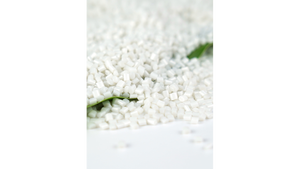August 7, 1998
The worldwide shift to home-based medical care bodes well for the U.S. and Europe as the disposable medical products market is expected to grow in both regions by at least 6 percent annually through 2002. Led by products laden with injection molded parts, the U.S. disposables market is expected to hit $48 billion in 2002, posting 6.2 percent annual growth en route. In Europe that number is expected to hit $46 billion with 6 percent annual increases.
Disposable medical supplies demand for the three leading injection molded product groups for 1997 and 2002 in the U.S. and Europe. (All figures are in billion$.) |
U.S. Opportunities
In the U.S. the best opportunities will be angioplasty catheters and accessories, DNA-based cancer test kits, and multifocal contact lenses (although contact lenses are not molded in the traditional fashion, the molds used to make them are traditional). Portable IV sets and ambulatory dialysis kits will also fare well due to incentives to promote home care.
Hospitals will remain the largest customer group, but the trend towards home healthcare is reflected by the increased demand for prefilled syringes, portable IV sets for home infusion, prefilled nebulizers for self-respiratory treatment, and other testing and drug delivery products.
Convenience, labor savings, and performance benefits will push the demand for disposable kits and trays, currently the largest segment, to $11.2 billion. Home HIV and cholesterol test kits, ambulatory peritoneal dialysis kits, custom open-heart surgical kits, and DNA-based in vitro diagnostic tests will provide the best growth prospects. Multiple source availability, pricing competition, and changing patient care approaches will moderate opportunities for most other medical kits and trays.
European Opportunities
Forecasts for Europe mirror those in the U.S., with some variation introduced by the medical modernization of Eastern European countries. Medical disposables will see the fastest growth in Eastern Europe as improving economies extend basic health services, but Western Europe's modern health sectors will continue to hold larger and more diversified opportunities in most product groups.
Healthcare reforms promoting shorter hospital stays and self-treatment will expand opportunities for nonhospital use of IV sets, oxygen supplies, and prefilled inhalers.
The medical kit and tray group will reach $9.5 billion in 2002 with 6.7 percent annual gains. In vitro diagnostic test kits will continue to account for the largest share of demand due to advances in DNA tests and contributions to cost containment. However, growth will moderate because of tighter controls on excessive patient testing. The best growth prospects for kits and trays will be major cardiovascular and orthopedic implant surgeries. The market for peritoneal dialysis and first aid kits will grow as health insurers promote self-treatment to contain costs.
Some 2500 companies make disposable medical supplies for European markets. Recent mergers and acquisitions are consolidating competition and strengthening the market leaders.
More detailed reports on the U.S. and European medical disposables markets are available from The Freedonia Group. Cost for each report is $3500.
Contact information |
The Freedonia Group |
Cleveland, OH |
Corinne Gangloff |
Phone: (440) 646-0809 |
Fax: (440) 646-0484 |
Website: www.freedoniagroup.com |
You May Also Like


